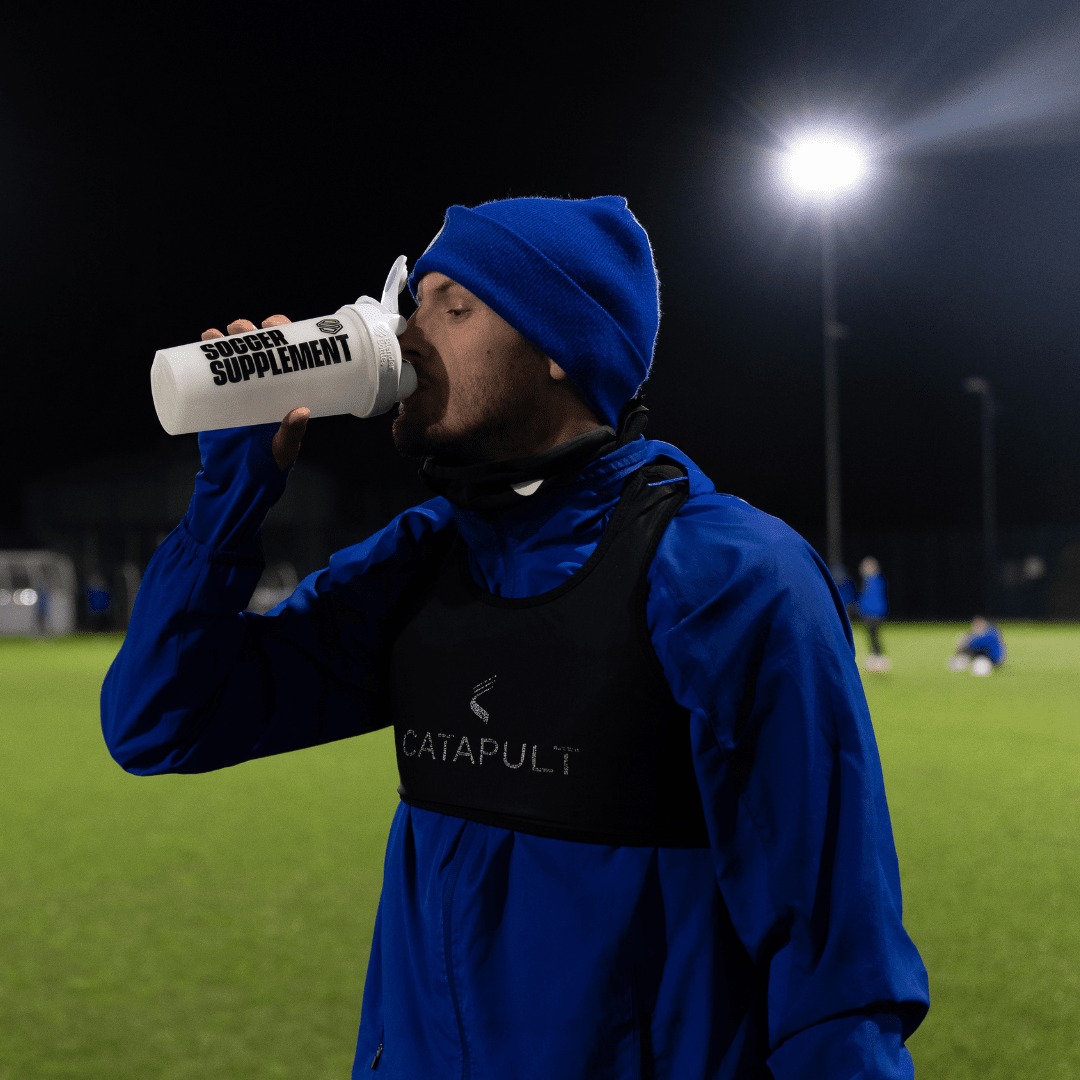A bigger muscle is generally a stronger muscle, and stronger muscles can help footballers in numerous aspects of their game. Improved shot power, improved jump height, a greater ability to retain and gain possession of the ball, to name a few. Managers and coaches have gained more appreciation of this fact, which is reflected in players’ training. However, less is known about how protein supplementation can support such training designed to build muscle and improve strength. As such, the rest of the article aims to shed some light on the issue. Published in 2017, a systematic review, meta-analysis and meta-regression by Morton and colleagues gave us the most comprehensive answer to these questions to date.1
For those unfamiliar with the terms:
Meta-analysis – a statistical procedure for combining the data from multiple studies to identify a common effect. To be included in this analysis, trials had to combine a resistance training and protein supplementation intervention and be at least six weeks in duration, with participants resistance training at least twice per week. Participants had to be healthy and not in an energy deficit.
Meta-regression – a tool sometimes used in meta-analyses to see whether the relationships between two variables depend on a third variable. For example, in this study, four variables were chosen to be included in the meta-regression: baseline protein intake (grams per kilogram of body mass per day), post-exercise protein dose (g), age and training status. This method is useful for generating hypotheses to be tested with future study.
Main findings:
- Protein supplementation resulted in an increase in relative daily protein intake (g/kg/day) from 1.4 to 1.8 and remained unchanged in the control group.
- Protein supplementation improved the increase in one rep max strength by 2.49 kg (~9%), suggesting that training is a far more potent stimulus than extra protein for increasing strength.
- Protein supplementation enhanced the increase in lean mass by 0.3 kg (~27%), muscle fibre cross-sectional area (CSA) by 310 𝜇m2 (~38%), and mid-femur CSA by 72.2 mm2 (~14%).
- Meta-regression revealed that the dose of protein consumed did not affect the training-induced changes in lean mass, though training status (positive), age (negative), and baseline protein intake (positive), did.
- In other words, the more well-trained an individual, the greater effect protein supplementation will likely have. Older people (>65y) either don't respond as well to protein supplementation alongside resistance training or, need more protein than the average of 20 g that was used in the analysed studies.
- Consistent with previous data, separate break point analyses revealed that protein supplementation beyond a total daily intake of ~1.6g/kg/day provided no further benefit for strength or muscle mass gains during resistance training. However, given that confidence intervals of this estimate ranged from 1.03 to 2.2 g/kg, it would seem that roughly 1.6-2.2 g/kg/day is suitable for those looking to maximise rates of muscle hypertrophy and strength gains.
The data from this study is in agreement with the previous largest and most comprehensive meta-analysis by Cermak and colleagues,2 who showed that protein supplementation during resistance training improved strength and muscle gains. As such, it appears as though protein supplementation is an effective way to augment strength and muscle mass increases when taken alongside structured resistance training. The supplementation with protein (either in powder or food form), is therefore recommended for players seeking to maximise their response to training. Ideally, 20-40g of protein would be consumed within a couple of hours following training.
Joseph Agu MSc.
Soccer Supplement ® Science Director
References
1. Morton, R. W. et al. A systematic review, meta-analysis and meta-regression of the effect of protein supplementation on resistance training-induced gains in muscle mass and strength in healthy adults. Br. J. Sports Med. bjsports-2017-097608 (2017).
2. Cermak, N. M., Res, P. T., Groot, L. C. De, Saris, W. H. M. & Loon, L. J. C. Van. Protein supplementation augments the adaptive response of skeletal muscle to resistance_type exercise training_ a meta_analysis.pdf. Am. J. Clin. Nutr. 96, 1454–1464 (2012).






